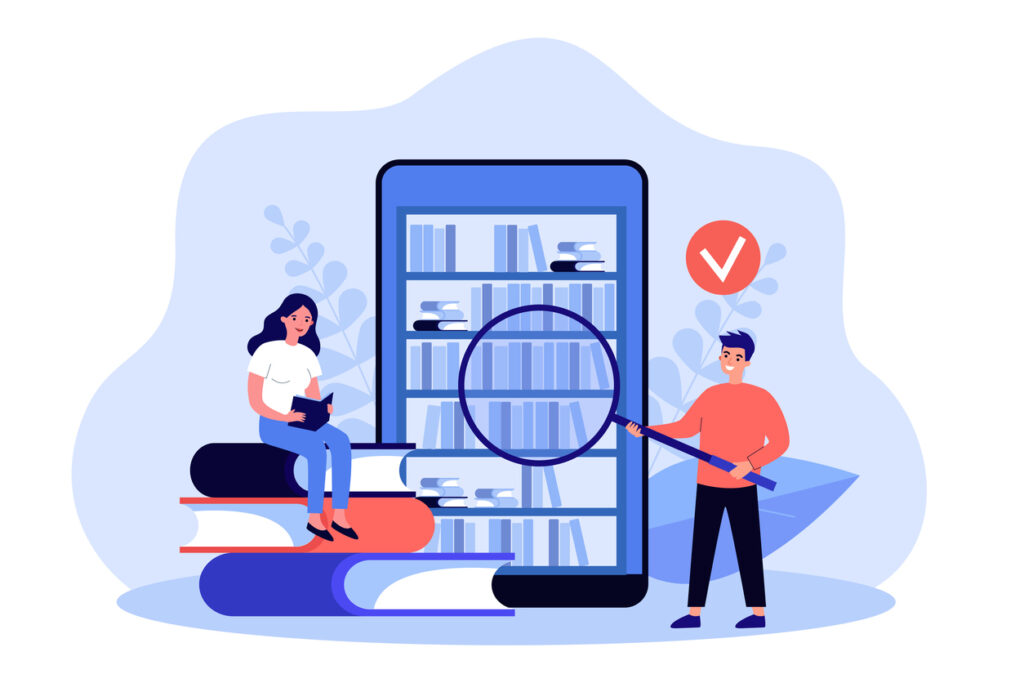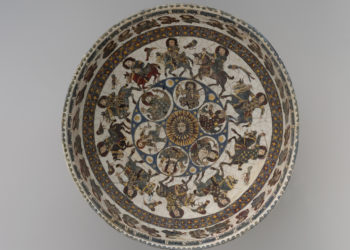Library discovery services — web-scale search engines configured for institutional library holdings — first came onto the scholarly communications scene in the mid-2000s as the localized equivalent to mainstream search products. Just as the indexing and relevancy engines found under the hood of commercial offerings like Google, Yahoo, and Bing are not easily understood, our industry quickly found that what goes into library discovery services like Summon, Primo Central, and EBSCO Discovery Service (EDS) is equally mysterious.
Enter NISO, our sector’s best bet for tackling thorny topics like this and establishing mutually beneficial best practices. Initiated in 2011, NISO’s Open Discovery Initiative (ODI) offers standard terms of engagement for the creation and implementation of pre-indexed discovery tools for academic libraries. The ODI protocols, first drafted in 2014 with an update approved in 2020, include a checklist for libraries, publishers, and service providers to indicate their alignment with best practices in delivering relevant and timely discovery of scholarly content. In part, ODI aims to help establish transparency and collaboration via what it calls “conformance statements.”
ODI statements have now been published by all three constituencies — and, as co-chair of ODI’s original working group that first set up these recommendations, I’ve been curious to learn how these statements are working in practice. In particular, given the institutional library role as customer of web-scale discovery services, how are ODI statements helping to drive cross-sector transparency and improvements for users of library search tools? So, I reached out to some of the libraries that have released ODI statements to hear their reflections and learn from their experiences.

What is the value of an ODI statement?
With the advent of these web-scale institutional search engines came modified librarian positions designed to support the content discovery journeys of students, faculty, and other library users. For Benjamin Bradley, Discovery Strategies and Systems Librarian at University of Maryland’s McKeldin Library, completing an ODI statement offered an “a-ha moment” in communicating his role and remit. The behind-the-scenes work required to configure and optimize systems for on-campus and remote access to library resources is often unseen and easily misunderstood.
For Juan Denzer, Engineering & Computer Science Librarian at Syracuse University Libraries, publishing an ODI statement is akin to his library’s involvement in the Scholarly Networks Security Initiative. Itemizing the work needed to implement and refine their instance of Summon is aligned with his institution’s efforts to balance transparency with safeguarding patron privacy.
Similarly, Micki Lubbers, Library Systems Manager at the University of Kansas Libraries, sees their ODI statement as one in a series of activities geared to support open access and open educational resources. Ensuring content discoverability and access is core to their operational plan and, since the work of technical services and e-resource management is not always glamorous, Lubbers feels transparency is key to demonstrating how they deliver on their obligations.
Lubbers is in good company with other librarians I spoke with who felt participation in ODI is a vote of confidence for the recommended practices and is part of their overall commitment to compliance with scholarly information standards. For Christine Davidian, Electronic Resources and Serials Librarian at Rowan University, participation “acknowledges that my institution is making an effort to uphold its responsibilities to make discovery of our resources successful.”
Davidian also sees the Rowan University Libraries’ ODI statement as sending a message to publishers and service vendors. “Posting the conformance statement publicly is a way of letting content and discovery service providers know that optimizing discovery is a high priority for our institution,” she said.
Any surprises or challenges?
Many of the librarians I spoke with found the ODI statement easy to complete, once they had contacted the right people and found the time to pull the details together in one document. For some, the hardest step was deciding how, where, and when to publish their checklist. Once in place, however, everyone I met with felt the statement provided a visible rationale for library resources dedicated to web-scale search tuned to their entitlements – representing the “why” behind the “what” of discovery librarians.
Bradley at the University of Maryland advises other librarians not to fret if they do not meet one or more criteria laid out in the checklist, because there will always be areas they can improve. Instead of seeing a statement with some gaps as reflecting negatively on the library, he encourages his peers to see it as a public statement of commitment to ongoing improvements and visibility into the hard work required to get institutional search right.
Most university libraries with ODI statements found that teamwork was necessary to capture details from across their institution, from acquisitions and interlibrary loan departments to information technology and cataloging teams. To complete their statement, University of Kansas Libraries put together a resource discovery team that now meets monthly to support their Primo discovery layer, which requires daily work to manage upgrades to the system, usability issues and user feedback, and a wish list of enhancements.
What are the impacts and benefits?
Libraries with ODI statements are demonstrating the scope and value of their investments in positive patron experiences with content search and retrieval. Denzer found the checklist brings to light all the various efforts required to make that single search box available on their library website. Fast and relevant search may feed our need for instant gratification, however, the fact is, complex systems must come together to tailor discovery for an institution. “It’s not like Google,” says Denzer.
Lubbers noted that an ODI statement is as much an internal communications tool as it is externally focused. Documentation is important to the KU Libraries in general and, since they released a statement, they have enjoyed the internal joke that publishing their checklist was like “girl scouts earning a badge.” Bradley agrees the checklist is a sort of public advocacy tool and has helped him express the value of his role to his supervisor and university administration.
Davidian said her library found the checklist validated many of their current practices; “overall, it confirmed that we are taking the steps we need to take to conform to open discovery and that the work must be ongoing in nature.” For Denzer at Syracuse University Libraries, there was the added benefit of involving a graduate student in their school of information, who also works for the library. This student benefited from the learning opportunity and the library benefited from a better understanding of the activities and departments that work together to make content discovery happen on his campus.
What comes next?
Everyone I met with said they were surprised to find that their ODI statement has become a framework for tracking progress and making ongoing changes to their own operations as well as their communications with both content and service vendors. Many librarians suggested that others consider the ODI standard as a tool for ensuring due diligence and quality control, whether institutions publicly share their checklists or not. Denzer at Syracuse said their ODI statement is “a living document” that will become the foundation for planning and prioritizing future improvements.
In looking forward, Davidian at Rowan University noted that ODI statements from libraries would ideally be answered by a growing number of statements from content and service vendors. “Making the conformance statement public sends the message that our library takes open discovery accountability seriously,” she said. “We are holding up our end of the bargain, and are looking to see that vendors are holding up theirs.” Lubbers agrees that ODI statements can help libraries hold vendors accountable and draw attention to the symbiotic nature of what is needed to deliver excellent content discovery experiences.
Denzer and others hope their publicly available ODI statements will inspire other libraries to come on board, as an aggregated view of how libraries are serving discovery needs would be very valuable to the community. Of course, that data set would be most valuable with high-volume participation – so here’s hoping that by sharing their story, this post will encourage others to join the ODI community. Please see the NISO ODI site for more resources for libraries, including workshops on conformance statements.
Discussion
2 Thoughts on "Web-scale Library Search: Where Are We Today?"
Thanks for the update, Lettie! On the provider side, SPIE Digital Library also gained value from completing a ODI Content Provider Conformance Statement Checklist. We also found places we can improve, and we were gratified to see a lot of things that we are doing correctly!
A minority of traffic to our site comes from library discovery services (the vast majority comes from Google Scholar and indexes like Web of Science), but the investment that our customers make in these services makes it important to us that it all works as seamlessly and transparently as possible. We certainly don’t want users hitting dead links in discovery services and losing trust in their library as a result, so we are all about improving the user experience however we can!



